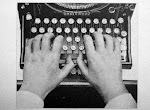
Shamhat is one the strongest female protagonists you will find in a book of fiction, but she isn’t a child of the sixties or a modern feminist. She is a priestess and servant of the goddess Inanna, tending to her temple duties in Mesopotamia in 2800 BCE. In Shauna Roberts’ Like Mayflies in a Stream, Shamhat struggles to preserve faithfulness to her goddess, a task that conflicts with the personality of King Gilgamesh, who focuses on lust and feats of strength rather than the good of his people.
Shamhat’s conflict results from two dreams, one received by Inanna’s chief priest, Nanna-Ur-Sag, and another, one received by Gilgamesh himself. From his dream, Nanna-Ur-Sag believes that a powerful man from the desert is destined to restore order, balance, and justice to Uruk. Gilgamesh, on the other hand, believes that a powerful man from the desert is destined to be the one companion strong enough to complete his restless and reckless personality.
A wild man, Enkidu, indeed lives in the desert, but to lure him into the city—Shamhat’s mission as dictated by Gilgamesh—the priestess must lose the trappings of her holy office and use her highly advanced sexual artifice, usually used only on a sacredd feast day of Inanna, to humanize Enkidu and convince him to journey from the desert to the city. If she is successful, however, will Enkidu fulfill the vision of Gilgamesh’s dream, or that of Nanna-Ur Sag’s?
A lesser writer might well have lost the narrative structure of such a novel in trying to execute a plot faithful to ancient Sumerian customs and terminology. Roberts, a PhD in anthropology with a longstanding interest in the history of the Near East, smoothly incorporates her knowledge of ancient culture into the epic struggle of a swaggering king and a priestess attempting to keep her dignity and oaths while mediating a battle between the earth and the heavens.
The novel will appeal to those who love both adventure and historical fiction. At a deeper level, the book is a fascinating and detailed character study of Shamhat as she uses humility and resolve, not combat, to retain her inner strength and core values while trying to save an entire city. Like Mayflies in a Stream (Hadley Rille Books, 2009) is an archaeologically-accurate novel that frames contemporary questions and struggles within ancient Mesopotamia. Roberts’ choice of time and place proves that the tension between integrity and power is a universal and ongoing conflict that lies at the heart of all human struggle, and, more importantly, human growth.












